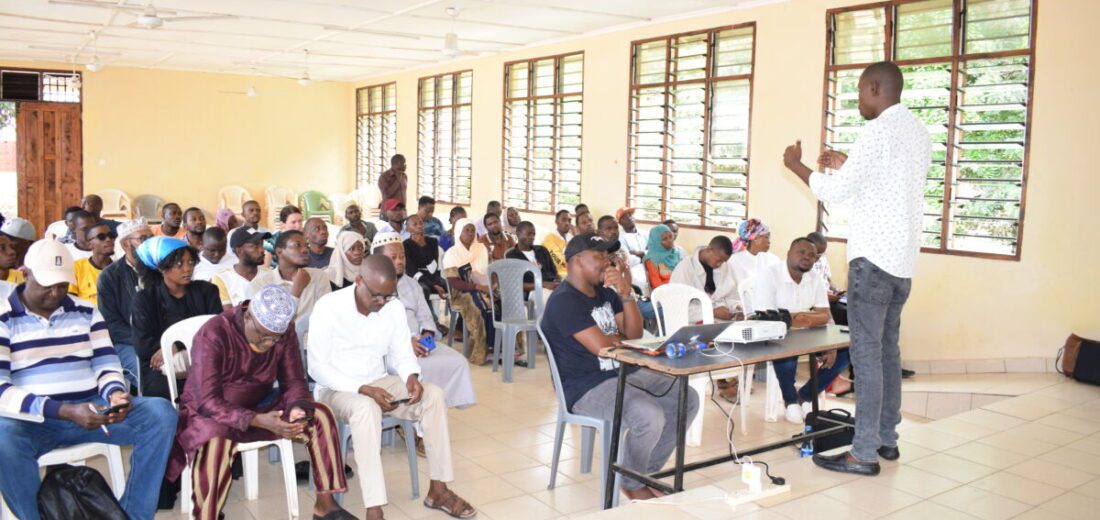
How Kenya’s Youth Are Reshaping Religion for a Shared Future
In Kenya, faith is not fading, it is shifting. It is undergoing a quiet revolution led by Kenya’s youth reshaping religion in unexpected ways. Young people are turning belief into a shared blueprint for business, healing, and hope. They are not abandoning religion; they are rebuilding it. Praying, yes, but also saving, coding, mentoring, and mobilising; weaving belief into the fabric of everyday life. This is not blind devotion. It is strategic, interfaith, and boldly future-facing. Faith is no longer just personal, it is practical. And in the hands of Kenya’s youth, it is fast becoming development’s most unexpected power tool.
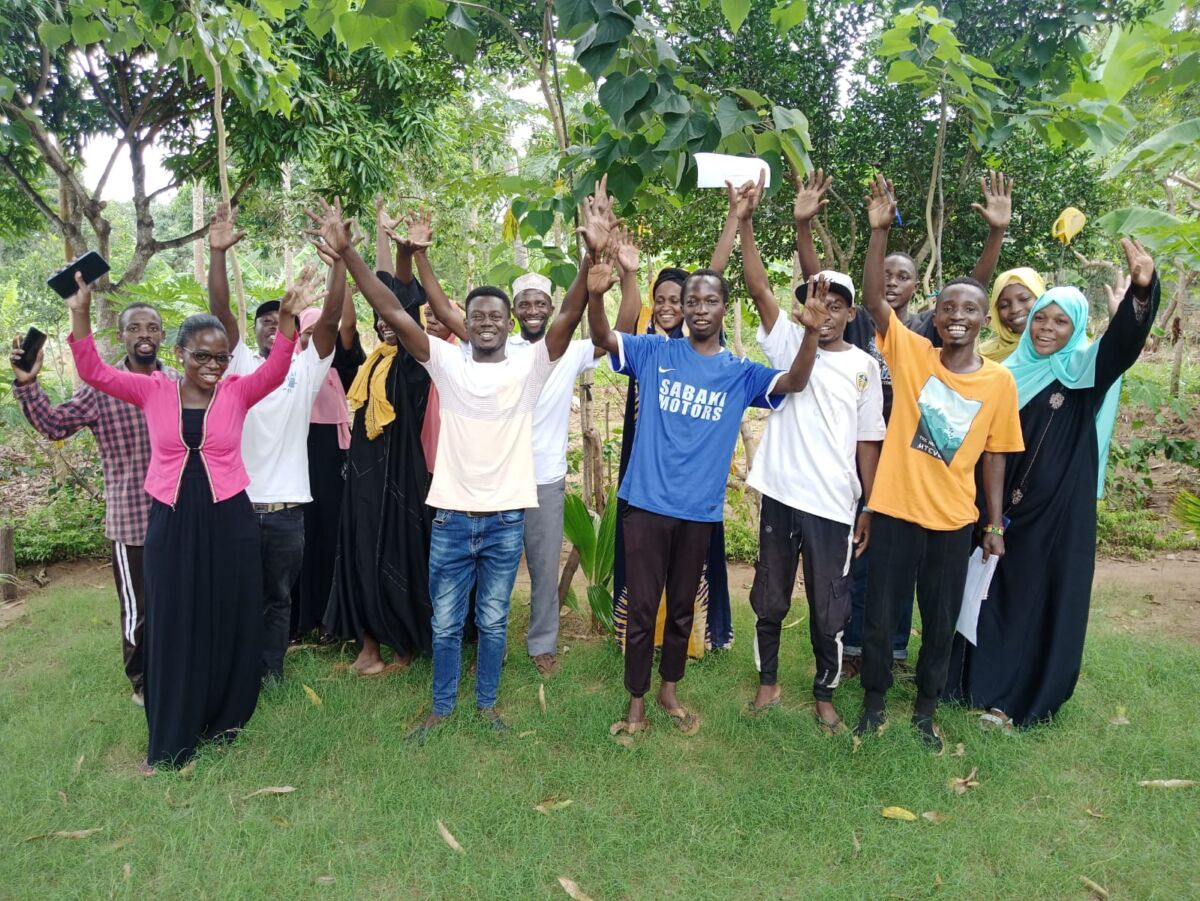
Religion has often been cast as a relic to be managed, or a private matter to be kept outside the professional realm. Yet for many people in Kenya and across much of the world, faith is not marginal: it is central. It is not a retreat from reality; it is the framework through which reality is understood, navigated, and rebuilt.
In Kenya, where nearly 85 percent of the population identifies with a religion, faith is not disappearing; it is transforming. And no one is driving this change more than the youth. From the bustling streets of Nairobi to rural towns like Kwale and Bungoma, young Kenyans are turning faith into action; not just for prayer, but to organise, build networks, challenge injustice, and shape new possibilities.
This piece is part of Faith in Development, a special editorial series created with support from Kerk in Actie and Cordaid, rooted in the Shared Futures Program. The series examines how young people from diverse religious backgrounds are translating their beliefs into action through savings groups, mentorship circles, tech platforms, and interfaith partnerships, all aimed at fostering peace, prosperity, and a sense of belonging.
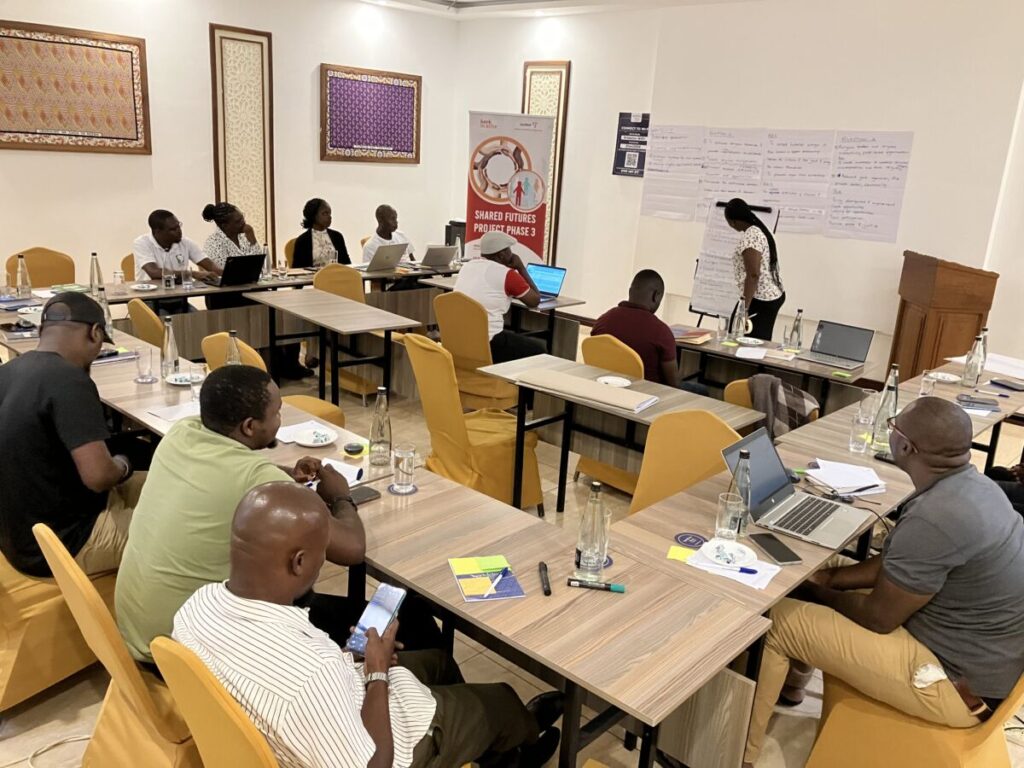
At its heart, the series explores one timely question: What kind of religious institutions do we need ten or twenty years from now? How can interfaith collaboration become a foundation for public life? And what if faith becomes a shared blueprint for dignity, belonging, and change?
What does Faith mean to Kenya’s Young People Today?
In Kwale County, grassroots organiser Juma grew up with a kind of faith not defined by scripture, but by sacrifice. He saw it in his mother’s quiet resilience; feeding her children before herself, selling charcoal to pay school fees, and whispering ‘We will make do,’ with a smile that never quite reached her eyes. Her devotion and resilience, rooted in her Muslim faith, became the moral compass Juma would later use to organise youth, mothers, and savings groups across the coastal region.
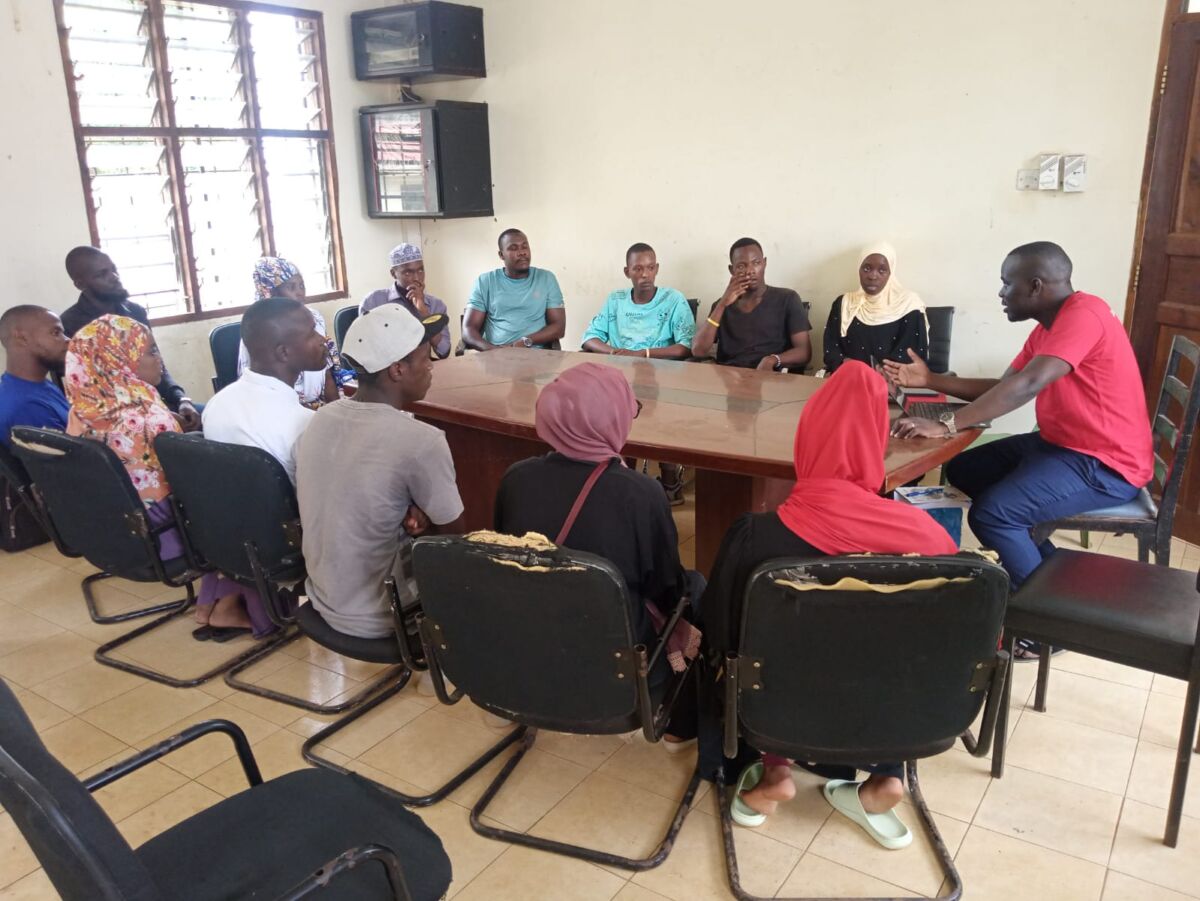
In Nairobi, Sharleen Mbereshia was raised Christian. According to her, Christ is the best thing that ever happened to her. As a youth leader at Chrisco Donholm Fellowship, she believes that faith has to meet people where they are. She helps transform her church into a space that blends worship with entrepreneurship and financial literacy. ‘We cannot ignore depression, online pressure, and joblessness,’ she adds. ‘Churches have to do more than pray; they have to prepare us for life.’
Muslim entrepreneur Salim Yusuf, based in Nairobi’s CBD, saw his faith deepen during some of the hardest times in his life. When he could not afford school fees, he spent two years at home. During this time, he started praying more because that was all he had. One verse from the Quran sustained him: ‘And whoever puts their trust in Allah, He is sufficient for them.’ Still, he is not afraid to critique. In his word, too many mosques avoid the hard conversations around mental health, unemployment, doubt where young people are pushed away when they need support the most.
Then there’s Ras Redi, a Rastafarian herbalist and youth organiser in Bungoma. His faith does not fit into neat boxes, and neither does his activism. Each week, he brings young people together under a tree for ‘reasoning sessions’, open forums where they discuss everything from drug use and farming to identity and belief. People think Rastafari is just reggae and dreadlocks, but according to him, it is about how we live, eat, speak, treat the Earth and treat each other.
Together, these stories show that Kenyan youth are not abandoning faith; they are carrying it into new spaces. Their faith is not a rulebook; it is a way of life.
Religion Fostering Youth Economic Inclusion
Along Kenya’s coast, Fumbwe Hamisi, a Muslim entrepreneur, is building a more just digital economy rooted in faith. When he entered the global gig economy, he thought talent and honesty would be enough. Instead, he faced algorithmic red flags, delayed payments, and subtle exclusion. He was always under review, underpaid, and ignored, and sometimes he wondered if it was his name, his prayers, or just being African?
Rather than hide his identity, he leaned into it. Together with Anjela, a German atheist he met at Aiducation International’s Leadership Academy in Nairobi, they founded Nilltech Solutions, a freelancer platform built on dignity, transparency, and cultural sensitivity.
Nilltech rethinks how faith and business can work together. Rooted in values like fairness and respect, the company challenges an industry that often exploits and underestimates African freelancers.
For Fumbwe, faith isn’t something he keeps private. It shapes how he deals with clients, fulfils contracts, and teaches others. Instead of hiding his faith to appear ‘professional,’ he created a space where belief and business can coexist. This is one example of Kenya’s youth reshaping religion by showing how faith can guide entrepreneurship and ethical practice. Faith, it turns out, is not a hindrance but a blueprint for success.
‘My faith is not a limitation, it is why I am honest, why I deliver on time, and why I treat people with respect,” he says. Anjela does not share his beliefs, but she shares his ethics. Their partnership proves that collaboration does not require agreement; it only requires mutual respect and shared values.
Back in Kwale, Juma is reshaping grassroots development through his initiative, Young Generation Talent Nurture. Drawing on his faith and lived experience with poverty, he organises chamas – small savings groups – mostly for young, single mothers. These circles build trust, financial literacy, and dignity. They enable women to save, borrow, and regain control of their lives.
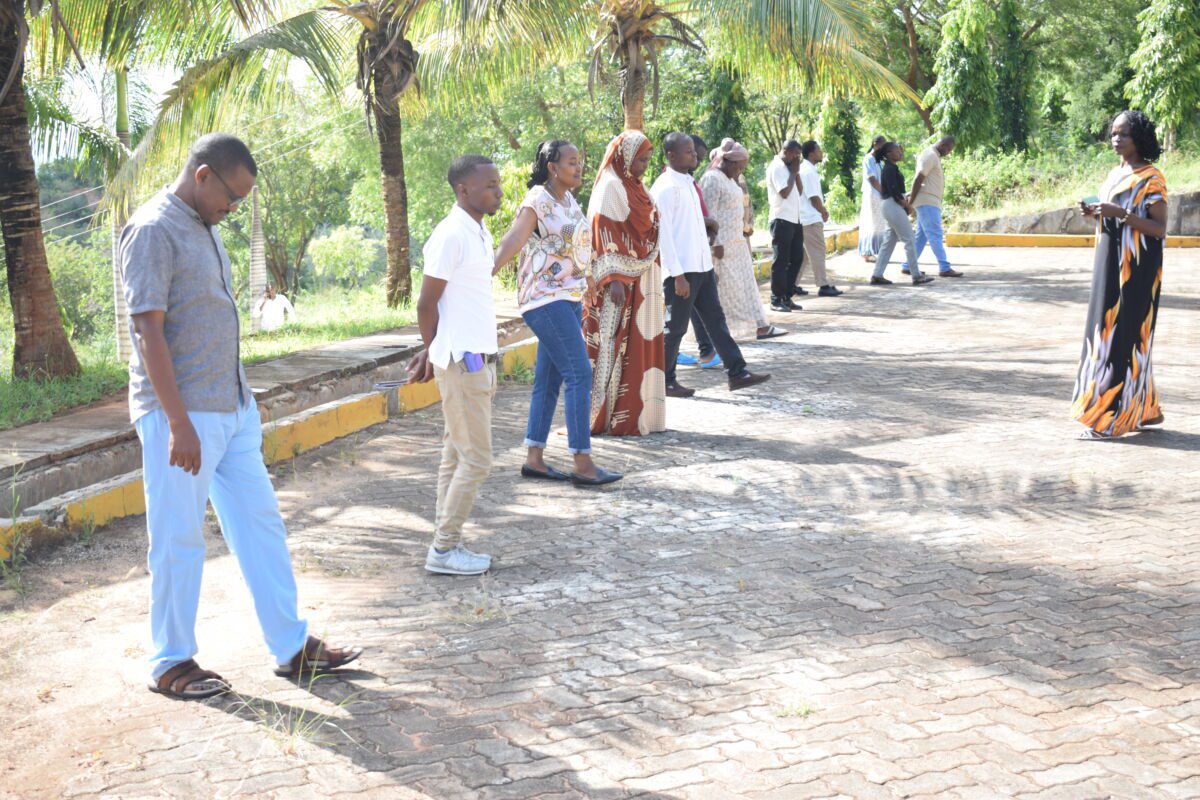
What started with saving loose coins grew into real resilience and interfaith solidarity. The groups meet under trees, in mosques, and in church halls. They write their own rules, save and lend, and settle disputes.
At first, trust was fragile and members used to fight and insult each other. But over time, they began to trust the process and themselves. A kiosk opened. School fees got paid. A neighbour no longer had to beg for medicine.
According to Juma, this is not about wealth, it is about control and dignity. And once again, faith anchors the work not as dogma, but as discipline.
Juma did not stop there. To support young men facing frustration and unemployment, he also partners with Samba Sports Youth Trust to create football-based support circles. After games, players gather for open conversations about mental health, addiction, and anger, topics often left in silence. In these open, vulnerable spaces, real transformation begins not with cash, but with care.
And they are not alone. Across Kenya, young people are turning faith into action, in churches, herbalist gatherings, and interfaith coalitions. This movement is part of Kenya’s youth reshaping religion into a tool for dignity and development. At Christco Donholm, Sharleen mentors youth by blending scripture with financial literacy and mental health support. In Kisumu, the Yamira Faith Action Lab brings together Muslims, Christians, and traditionalists for joint clean-ups and climate advocacy.
In Bungoma, Ras Redi’s open-air gatherings help marginalised youth navigate addiction, identity, and purpose. These young people are creating change from the inside out, using faith not as a show but as solid ground to build from.
The Shared Futures Program is proving transformational. In Likoni, Mombasa, Imam Mwinyi Ali of the Coast Interfaith Council of Clerics has seen the results firsthand. When Shared Futures reached out to his council, they already had community-based Programs in place, but the partnership added a new dimension. The new dimension changed how deeply they began to understand one another, not as Muslims and Christians, but as brothers and sisters.
The Program, he says, helped bridge religious divides and strengthened teamwork across faiths and tribes, and greatly reduced drug abuse and youth radicalisation in the area and now there is more thoughtfulness in how people relate. Peace has grown. Differences no longer matter.
In Tsimba Golini ward, Kwale County, Chief Alfred Mwambaka, a Christian leader from Siwa Location, echoes the same spirit. He attended interfaith workshops through Shared Futures and now works closely with Muslim and Christian communities to strengthen security and social ties. ‘We are not just tolerating each other. We are working together,’ he says. ‘We are all one. We are all children of God.’
He recalls a defining moment when a sick Muslim man came to him for help. As a church leader, he organised a fundraiser, although some members of his church initially hesitated. They were unsure about helping someone from a different faith. On the day of the event, 15 Muslim men in kanzus walked into the church to support the effort. That act of solidarity left a deep impact. This kind of unity is the future he dreams of, the same spirit seen in Kenya’s youth reshaping religion today. He envisions a future where there are no walls between people from different religious divides.
He believes the next step is for religious leaders to come together more intentionally and demonstrate to their congregations what unity looks like in action. He echoes that communities already live and work together it is time to let leaders meet, plan, and build together, too.
These narratives exemplify that the concept of interfaith cohesion is not a hypothesis. It is alive and well across workplaces, intersections, places of worship, and digital platforms. It is for this very reason that the Shared Futures Program was founded.
Under the Shared Futures Program, youths are engaged in interfaith dialogue platforms and workshops. In these spaces, they learn about each other’s faiths and address the root causes of religious tensions. They are also engaged in economic empowerment training like entrepreneurship, agribusiness, apprenticeship, and providing linkages to the laboratory market. The interactions change their views, attitudes, beliefs, and improve relationships.
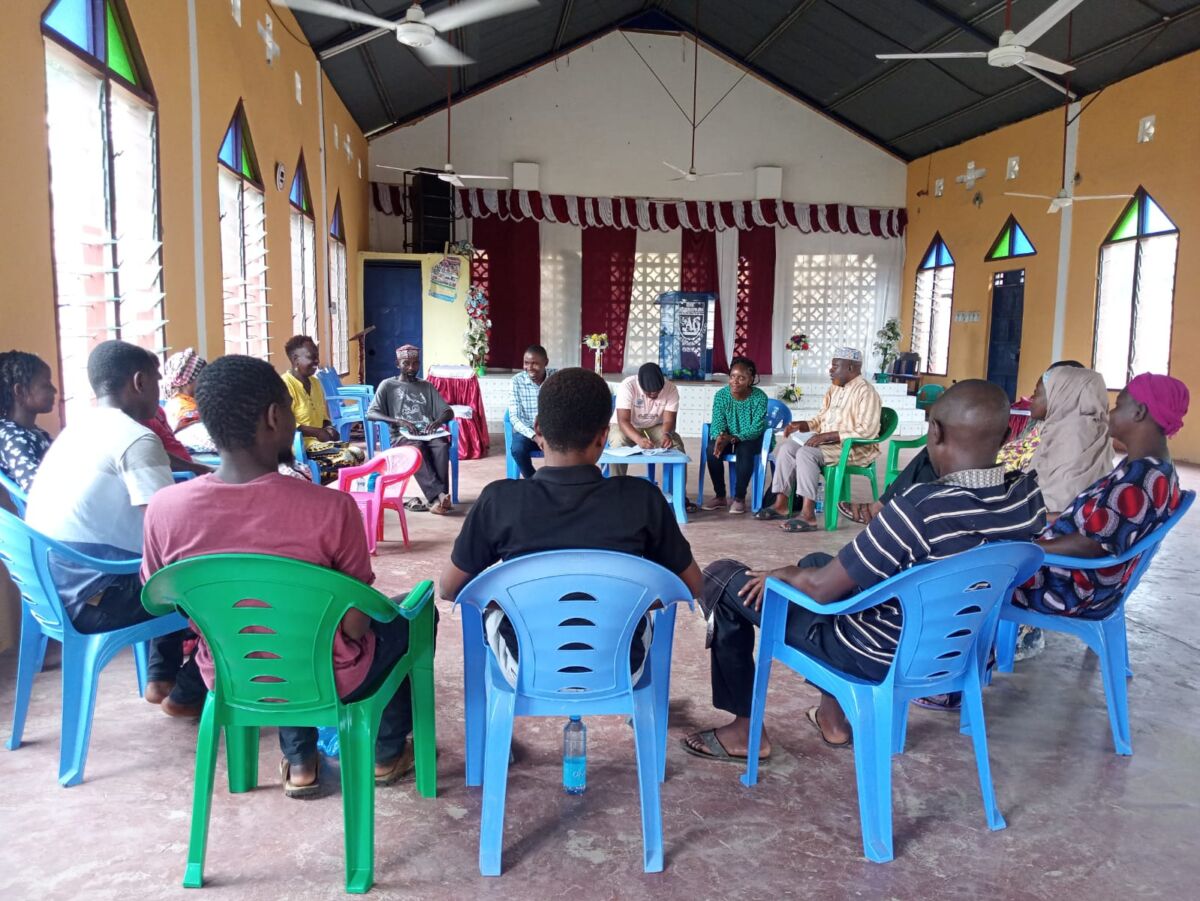
According to Christine Mwanyale, a project officer for the Program, what surprised her the most, is how youth are using faith not to retreat but to connect. It is giving them a sense of purpose and belonging.
In addition, Christine calls for organizations to step up in the sense that, apart from providing opportunities for learning and economic empowerment training, continuous mentorship during and afterwards is important. More investment for youth-centred initiatives through their direct involvement from planning to completion.’
What kind of faith do the youth want?
Sharleen calls for churches that respond to mental health, digital pressure, and financial realities. ‘Faith must evolve. It must respond,’ she says. Salim envisions mosques that embrace tough conversations, teach entrepreneurship, and unapologetically assist struggling young people.
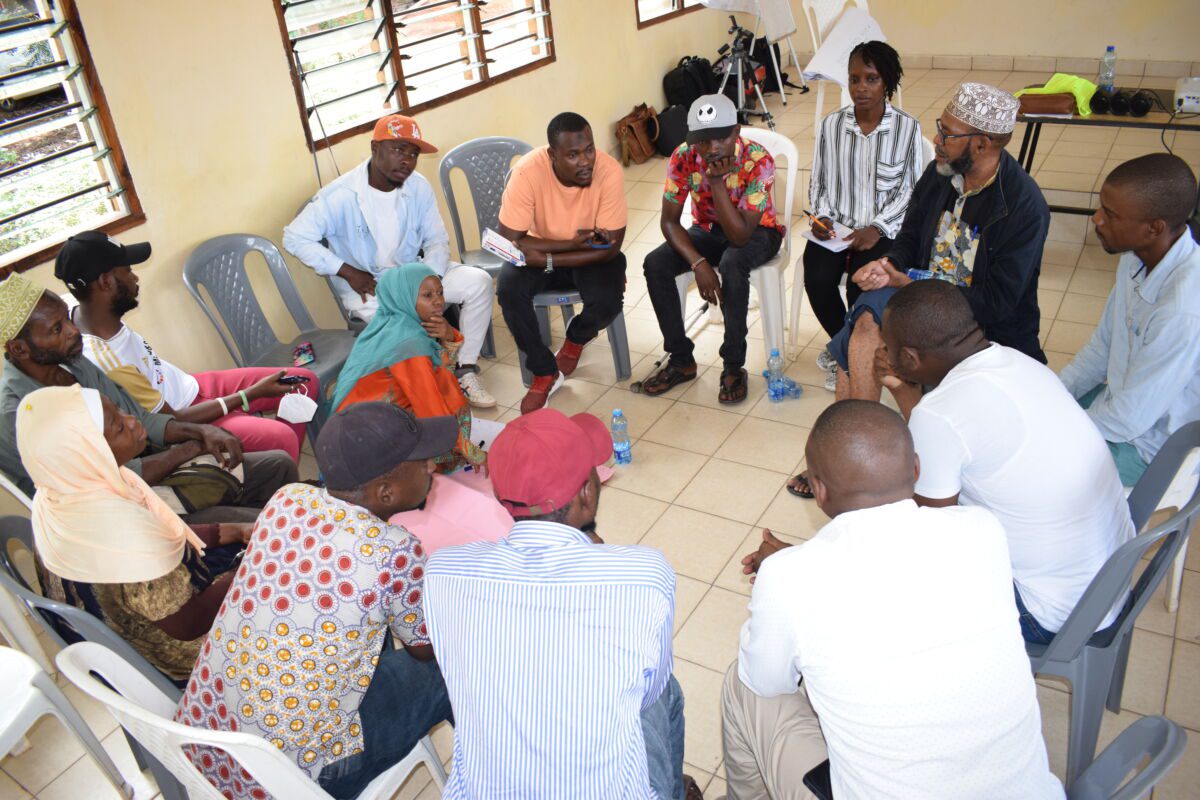
Ras Redi seeks recognition. ‘Rastafari is spiritual. It is African. It builds self-respect,’ ‘Why does development ignore us?’ he states. Juma wants a gradual, community-driven transformation. Listening to faith instead of lecturing. Unity that does not divide but rather digs deep. ‘We do not need saving, we need space. Respect. Trust.’
What if future development models actively included interfaith youth panels in county planning? What if interfaith vocational centres were publicly funded? The future of faith in public life is already here. As faith serves as a catalyst for entrepreneurship, healing, and unity among youths in Kenya, there is hesitation surrounding this shift.
Christco Church elder David Sebit voices concern, believing that younger generations are reshaping faith a little too quickly. ‘Faith unites people regardless of tribe,’ he says. ‘But today’s youth think faith and tradition can be modernised.’
Sebit also believes that there is a lack of structure. In doing so, he admits that the need for inclusion and creativity is welcomed, but it must be approached with reverence, respect, and fear of God. A sense of sacredness should underlie everything. Young people should be taught the difference between cultural change and spiritual dilution. According to him, this will mark the distinction between faith and trends.
Despite the tensions between distinct age groups, one thing remains constant: public belief is not receding anywhere; it is evolving, especially in the online sphere. Kenya’s youth reshaping religion are not abandoning belief; they are engineering it. They are coding it into ethical startups, building it into football circles, recording it into podcasts, and planting it in interfaith gardens. Far from being a relic, faith is becoming a resource. Not for control, but for connection. Not for spectacle, but for systems.
As the system draws its curtains, we can conclude that what Kenya’s youth are building is something else entirely, something new, plural, principled, and alive. In the hands of today’s youth, belief can emerge as one of the most genuine, responsible, and game-changing assets when wielded by them. ‘I would like religion not to be thought of as a dividing factor. Instead, it should be a reason for people to come together,’ Christine says.

Leave a Reply